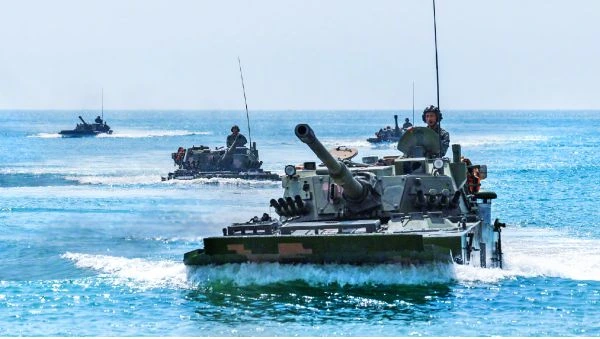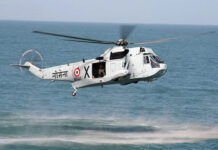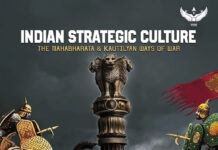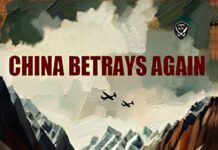
The trillion Dollar question today is not “If” China will attack Taiwan but “When.” The Chinese calendar was knocked off course last year, when Russia attacked Ukraine. Going by the Cuban Missile Crisis precedent of 1962, that was the ideal time for China to initiate hostilities, as the West seemed wholly pre-occupied with Ukraine. What stopped China cold in its tracks was the perceived poor performance of the Russians initially. Putin had opted for Gen Gerasimov’s hybrid war doctrine and settled for invasion “Lite.” He did not want to hit his Ukrainian cousins too hard and, hence, launched not an all-out assault but a “Special Military Operation.” He hoped, somewhat irrationally, that it would be like Georgia 2008 or Ukraine 2014 redux. The Ukrainians would not fight and just fold up and surrender when Russian tanks reached near Kiev. This was a disastrous failure of intelligence. Even later, he was keen to open negotiations, and as a sign of his good faith, agreed to withdraw Russian forces from Kiev. The West, of course, made it sound like Russia had suffered a total rout. Until Sep last year, Putin refused doggedly to order even partial mobilisation. This stretched out the Russian troops very dangerously thin on the ground and Ukraine exploited the glaring gaps to launch offensives (that merely followed up Russian forces as they were ordered to withdraw to more defensible river lines). A lot of hoopla was created that Ukraine was winning the war. An enraged Russian Army finally forced Putin to order partial mobilisation of 3,00,000 reservists and that has changed the entire complexion of the war. If the Russians want to win, they will have to revert to their standard way of warfighting that relies on Mass and high tech and treats Artillery as the God of War. The entire problem in the Russian campaign stemmed from the inherent tensions between the classical Russian way of war and the new-fangled Gerasimov doctrine (that has not worked).
For the world, the prime lesson of this war is the paradigm shift between the power of Defence over Offense. With satellite surveillance and drones, surprise is virtually impossible to achieve. Modern technology has made attacks prohibitively costly. It was this that had deterred China so far.
Russia was attacking across land. China would have to mount a prohibitively costly amphibious assault over 80 miles of sea. Politically and militarily, it would be a very high-risk venture with inordinately high chances of failure and fiasco. China’s habitually cautious political and military leadership baulked at taking such risks. There was an air of triumphalism in America then. They completely believed their own propaganda that they had beaten Russia hollow. The Americans went out of their way to rub China’s nose in the dirt. China was taunted with a series of high-profile political visits to Taiwan. There was a reckless air of hubris in Washington that it could take on Russia and China simultaneously and beat the hell out of both of them. The reality check came in June-July 2023, when the long advertised Ukrainian counter-offensive stalled badly on solid Russian defence lines. This seems to have engendered a sobering rethink in Washington and a number of senior officials (including the legendary Henry Kissinger) were sent to placate a humiliated and infuriated China. With its shrill and strident rhetoric of the last few decades, no Chinese leadership can afford to be seen as backing down on Taiwan. The more they wait, the stronger will Taiwan’s defences become. It’s a Hobson’s choice.
Meanwhile, the Chinese military also seems to have seen through the shrill Western propaganda on Ukraine. Xi Jiniping has been exhorting his commanders to speed up their preparations and avoid any more humiliations. Intelligence of this hardened Chinese stance and, perhaps, a speeded up timeline for Taiwan, has possibly induced Washington to hold out an olive branch. It is one thing to talk glibly of a two-front war. It is quite another to fight one. It is also a monumental strategic folly to do so. Kissinger had specifically advised against such a high-risk venture and went himself to patch up with Beijing.
China has learnt its lessons from Ukraine. It should now be investing heavily on enhancing its arsenal of Tactical Ballistic Missiles, Cruise and Hypersonic missile capabilities. It has already started to push up its nuclear arsenal from 350 to over a 1000 war heads. It is rapidly augmenting its naval capabilities for amphibious assault. With such a determined national effort, this build up process should not take very long. The Chinese Strategic Support Forces will play a major role in waging cyber and electronic warfare and will launch a major cognitive war offensive to shape the global narrative and maintain information dominance.
A China-Taiwan war, however, will not be a limited and localised conflict. China will have to exert really hard to deter, delay and defeat third party intervention. At stake will also be the vital semi-conductors or micro-chip industry of the world. Taiwan is one of the largest chip-making countries on the planet. The world cannot afford to let that capacity fall into Chinese hands. If she is seen as winning, the US itself may have to undertake a scorched earth policy by bombing Taiwan’s chip-making plants (even as Great Britain had bombed the French fleet after France surrendered in World War II). That worry is also behind the attempt at friend-shoring chip making, by encouraging India and Vietnam, etc, to start the manufacture of micro-chips in a big way and create new supply chains.

















